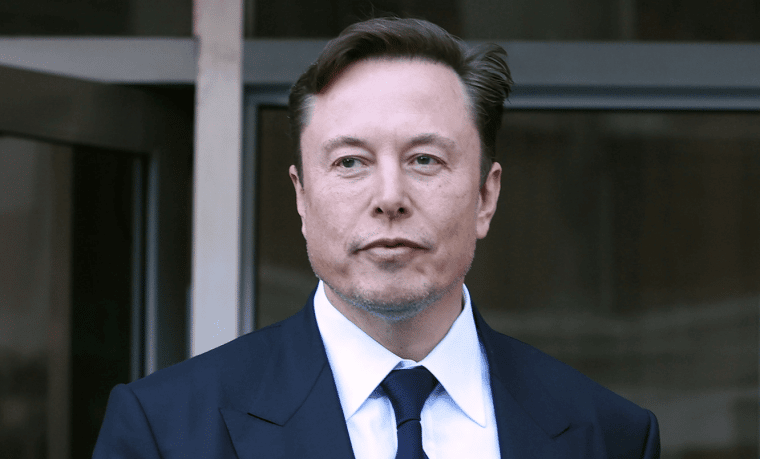
However, board members, including President Greg Brockman and CEO Sam Altman, rejected the takeover bid for direct control of the company.
One Horse Race Bid: What Could Have Been?
Elon Musk, now a billionaire and self-claimed cryptocurrency influencer, was part of a small group that founded the artificial intelligence (AI) company in 2015.
According to Musk, the platform was designed to run on an open-source network, hence why he named it “OpenAI.”
The AI company was geared towards non-profit and focused on depth research beneficiary to a series of global industries.
OpenAI was created as an open source (which is why I named it “Open” AI), non-profit company to serve as a counterweight to Google, but now it has become a closed source, maximum-profit company effectively controlled by Microsoft.
Not what I intended at all.
— Elon Musk (@elonmusk) February 17, 2023
However, Musk and other co-founders were caught at loggerheads towards significant objectives. Musk pointed out that OpenAI needed more resources to compete with industry leaders like Google.
More so, Tesla and OpenAI competed for the same people (labor services), which caused immense disputes.
Also, Tesla was competing for some of same people as OpenAI & I didn’t agree with some of what OpenAI team wanted to do. Add that all up & it was just better to part ways on good terms.
— Elon Musk (@elonmusk) February 17, 2019
Worried about the company’s downtrend, Musk offered a takeover bid for direct control as he claimed to have the vision and skills to counterweight Google and steer the AI company toward success.
However, the bid was rejected by other OpenAI founders, including Greg Brockman, now its president, and Sam Altman, the present CEO.
The conflict of interest led to the resignation of Elon Musk from the board of directors in 2018. The Tesla CEO also reneged on a promise of $1 billion in funding. Instead, only $100 million was provided, leaving the artificial intelligence company with a long list of debts as it developed large-scale AI models, including DALL-E and Generated Pretrained Transformer (GPT) series.
As a result, OpenAI, the once non-profit firm, transitioned into a for-profit entity to pay back debts and research costs. This led to a close partnership between OpenAI and Microsoft, one of the biggest technology corporations in the world.
Microsoft provided billions to cater for debts and research costs and offered exclusive licenses to use OpenAI’s innovations in its products.
This partnership received backlash from various tech and AI communities as it was seen as a betrayal of OpenAI’s initial non-profit founding principles and a sham precedent for startup AI labs.
Elon Musk also stated his dissatisfaction with the partnership as OpenAI is now a closed source controlled by profit-oriented Microsoft.
OpenAI was created as an open source (which is why I named it “Open” AI), non-profit company to serve as a counterweight to Google, but now it has become a closed source, maximum-profit company effectively controlled by Microsoft.
Not what I intended at all.
— Elon Musk (@elonmusk) February 17, 2023
He also stressed that if his takeover bid were accepted, the AI firm would stick to its open-source protocol and non-profit principle.
OpenAI & Microsoft: The Corporate Monopoly-Based Partnership
Most AI enthusiasts term OpenAI’s partnership with Microsoft as a corporate monopoly, that is, Microsoft being the spearhead that makes final decisions on products.
A major example is the OpenAI research information dissemination structure which has changed since the advent of the partnership. When the GPT series 4 language model was released, there was little to no info on how it was created or its training data.
OpenAI now shuts access to research information on models, making it harder for the community to understand how it works.
Many experts believe this new turn was propelled by the corporate hand, Microsoft, in a bid to prevent AI enthusiasts from developing other languages or projects that may rise to become competitors in the future.
However, it cannot be argued that the monopoly-based partnership has birthed new products, with the ChatGPT bot’s accessibility to internet plugins being the latest addition to the list. Microsoft has also integrated OpenAI’s tech into its myriad of stellar products, including Windows and Office suites.
There are rumors that the AI-based company could transition into creating human-like bots. Already, enthusiasts have aired their opinions or, rather, valid concerns over safety threats should this bot malfunction, override, or get hacked.
The thought of Microsoft financing the concept with eyes set on profit makes it worst.
Musk has expressed his dismay over OpenAI’s latest product trajectory as anticipated. Last Friday, he tweeted a meme captioned, “Me realizing AI, the most powerful tool that mankind has ever created, is now in the hands of a ruthless corporate monopoly.”
The caption is geared towards optimal dissatisfaction over the OpenAI partnership with Microsoft.
I’m sure it will be fine pic.twitter.com/JWsq62Qkru
— Elon Musk (@elonmusk) March 24, 2023
Overall, it remains to be seen what would have been if Elon Musk’s takeover bid had been accepted.
However, considering recent tweets by the Tesla CEO, it is likely that partnerships with Microsoft or money-driven corporations would be far from existence.